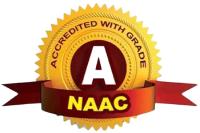B.Sc. (Emergency Medicine Technology)
B.Sc. (Emergency Medicine Technology)
Overview:
B.Sc. Emergency Medicine Technology is a course which provides in depth knowledge and skills for working as an EMT in the emergency medicine department in tertiary care, private and government hospitals, as a member is EMS in the pre-hospital setting, as an EMT in air ambulances, wilderness response, industrial services as well. Srinivas Hospital has a well-equipped Emergency Department for various procedures and management of patients.
Objectives:
B.Sc. in Emergency Medical Technology (EMT) typically focuses on training students in emergency medical services (EMS) and healthcare management in urgent, critical care settings. This specialty prepares students to respond to medical emergencies, provide advanced life support, and perform various medical interventions in emergency situations. The program also includes learning about medical technology, equipment, and the management of medical emergencies.
Features
B.Sc. in Emergency Medical Technology (also known as Emergency Medical Services or Emergency Medical Technologist programs) is a specialized undergraduate program designed to train students to become highly skilled professionals in the medical field, specifically in emergency care and pre-hospital settings. This program prepares students to handle emergency situations, provide critical care, and assist in trauma management.
Duration:
4 Years
Semesters: 8 semesters
Eligibility
:
A candidate seeking admission to the B.Sc. physician assistant programme must be 17 years old as of December 31st of the year of admission and must have studied English as one of the principal subjects during their academic tenure.
1. Two-year Pre-University examination or equivalent as recognized by University with Physics, Chemistry and Biology as principal subjects of study.
OR
2. Pre-Degree course from a recognized University considered as equivalent by university, (Two years after ten years of schooling) with Physics, Chemistry and Biology as principal subjects of study.
COURSE STRUCTURE:
| Semester | Subjects |
| 1st Semester |
Anatomy Physiology Introduction to Emergency Medical services |
| 2nd Semester |
General Biochemistry General Pathology Instrumentation in emergency medicine Environmental Science and Health |
| 3rd Semester |
General Microbiology General Pharmacology Trauma care & first aid in emergencies Cardiopulmonary & life support resuscitation |
| 4th Semester |
Applied Pathology & Applied Microbiology Obstetrical & Gynecological emergencies Medical emergencies -I Pre-Hospital Trauma Life support Introduction To Clinical Psychology |
| 5th Semester |
Orthopedic emergencies Neurological emergencies Medical Emergencies II Cardiovascular life support Surgical Emergencies |
| 6th Semester |
Toxicology Critical care & disaster management Research Methodology and Biostatistics Pulmonary Function Testing Emergency Radiology |

